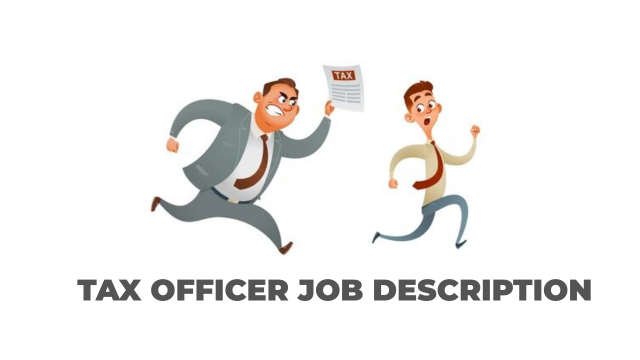Are you detail-oriented and passionate about finance, law, and public service? A career as a Tax Officer Jobs Description could be your perfect fit. With governments depending on accurate tax collection to fund public services, tax officers play a vital role in ensuring compliance and fairness within the taxation system. Let’s dive into what this role entails, the qualifications required, and why this profession continues to grow in demand.
What Is a Tax Officer?
A Tax Officer, also known as a Tax Examiner or Revenue Officer, is a professional responsible for assessing, collecting, and auditing taxes from individuals and organizations. They ensure that entities are adhering to national tax regulations and policies, and they play a key role in identifying discrepancies, fraud, or non-compliance.
Key Responsibilities of a Tax Officer
Tax officers perform a variety of important tasks. Their responsibilities often include:
- Reviewing tax returns for accuracy and completeness
- Auditing individuals and businesses suspected of tax evasion or non-compliance
- Calculating taxes owed and issuing assessments or refunds
- Providing guidance to taxpayers on tax laws and filing procedures
- Investigating discrepancies in tax filings and financial statements
- Maintaining records and reports on tax cases and compliance trends
- Liaising with other departments such as legal and enforcement units
- Keeping up-to-date with changes in tax legislation and policy
Essential Skills and Qualities
To succeed as a tax officer, you’ll need a unique blend of analytical and interpersonal skills:
- Attention to detail: Tax work demands precision and accuracy.
- Analytical thinking: Ability to dissect financial records and spot inconsistencies.
- Communication skills: Tax officers often explain complex laws to the public.
- Integrity and confidentiality: Handling sensitive data ethically is crucial.
- Problem-solving abilities: Especially when navigating disputes or complex audits.
- Time management: Managing multiple cases under strict deadlines.
Education and Qualifications While requirements vary by country or state, a bachelor’s degree in one of the following areas is usually necessary: Accounting, Finance, Economics, Law, Business Administration
Additional certifications such as CPA (Certified Public Accountant) or Enrolled Agent (EA) credentials may enhance job prospects. Some tax officers may also undergo specific government training programs upon employment.
Career Outlook and Opportunities
According to global labor statistics, the demand for skilled tax professionals remains strong, particularly as governments increase focus on financial transparency and digital taxation. Career progression might include roles such as: Senior Tax Officer, Tax Auditor, Tax Consultant, Compliance Manager, Policy Advisor
Work Environment
Tax officers may work in:
- Government revenue departments (local, state, or federal)
- Tax tribunals or judiciary bodies
- Private tax consultancy firms
- International taxation agencies
- NGOs and financial institutions
Most tax officers work standard office hours, although overtime may be required during peak tax seasons.
Why Choose a Career as a Tax Officer?
- Job stability: Government roles typically offer secure employment.
- Public impact: You’re helping fund essential services and ensure fairness.
- Intellectual challenge: Constant updates to tax law require lifelong learning.
- Growth opportunities: Plenty of room for vertical and lateral career moves.
The Tax Officer profession offers a unique blend of stability, societal impact, and intellectual engagement. Whether you’re entering the workforce or considering a career shift, this role offers a rewarding path for finance and law enthusiasts. For more career tips and opportunities in finance and governance, visit elimutimes.com
CHECK ALSO:-






